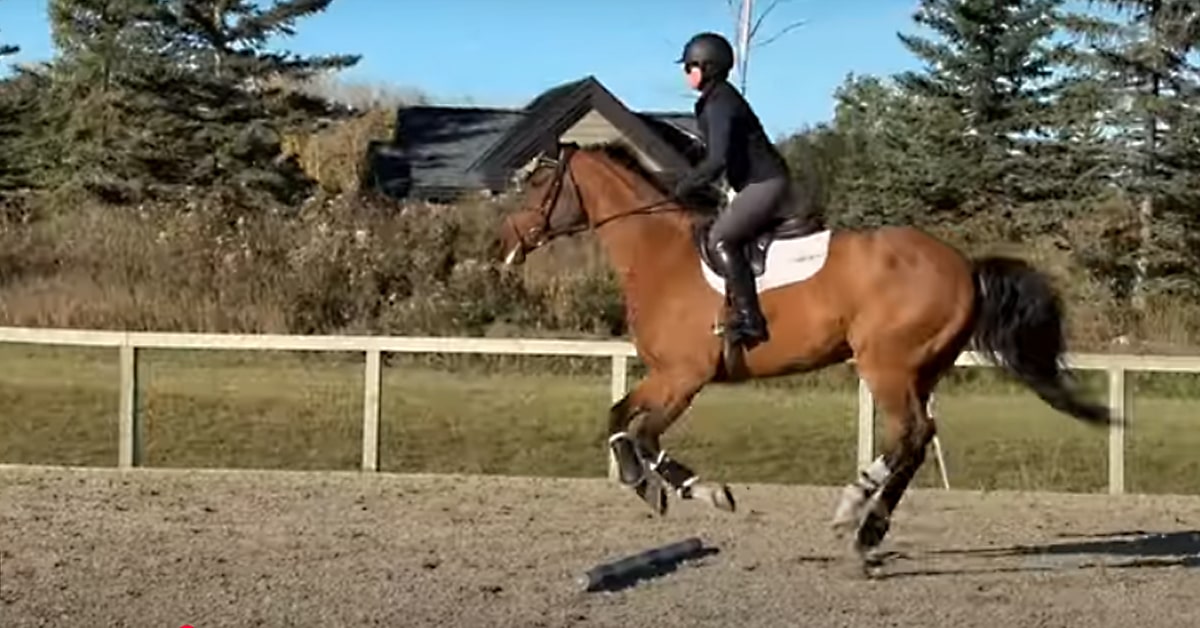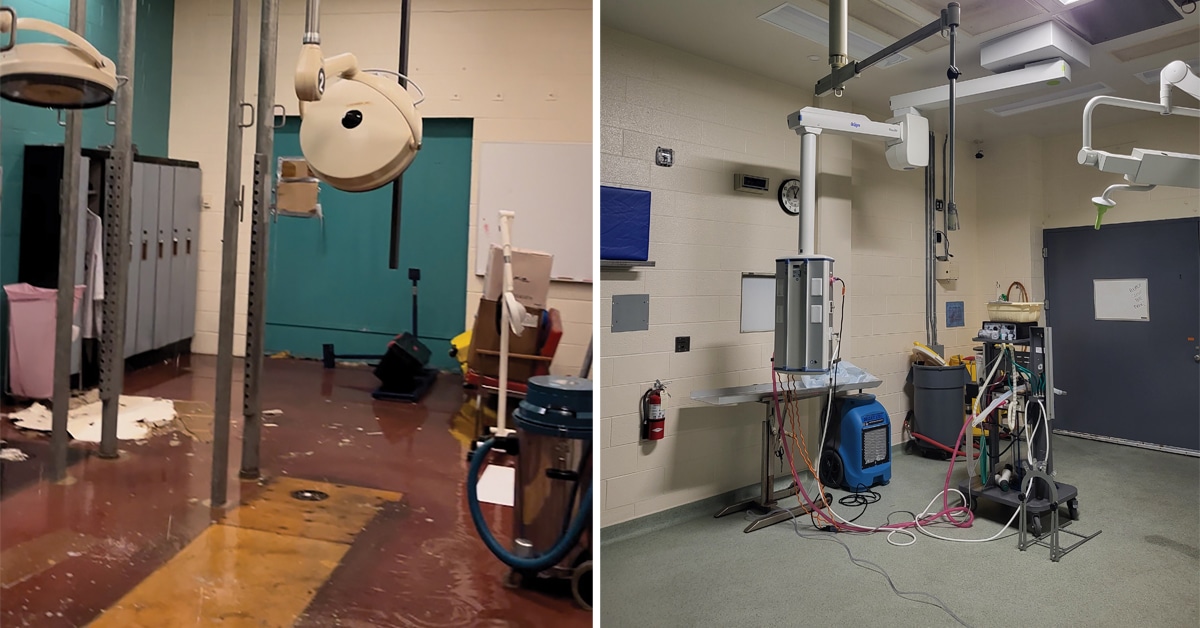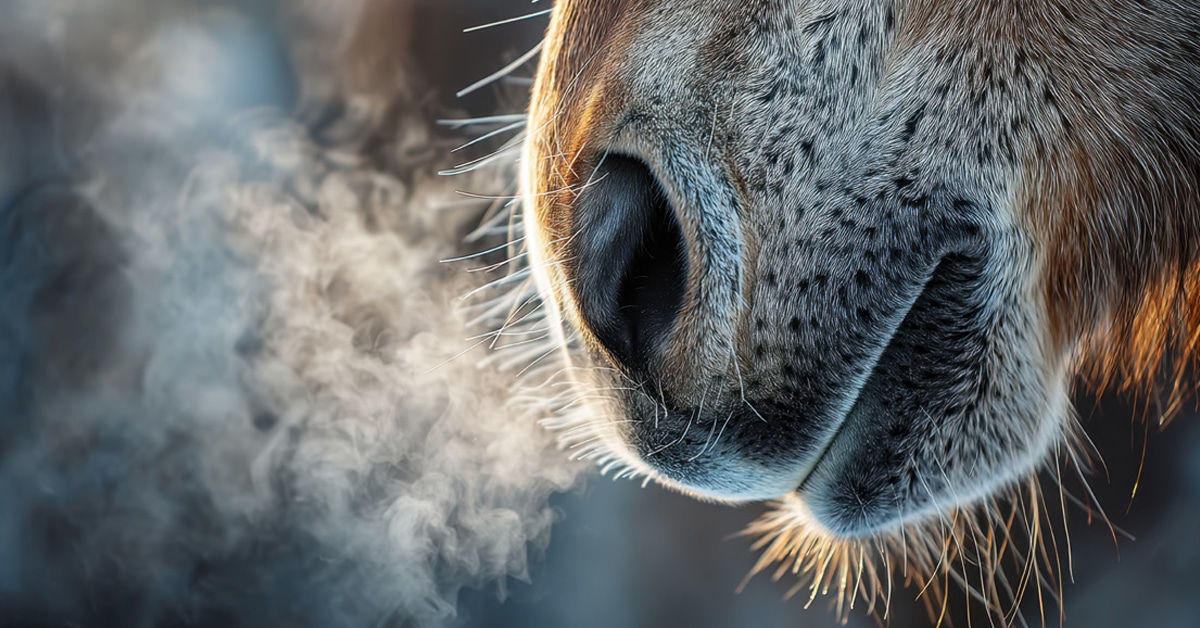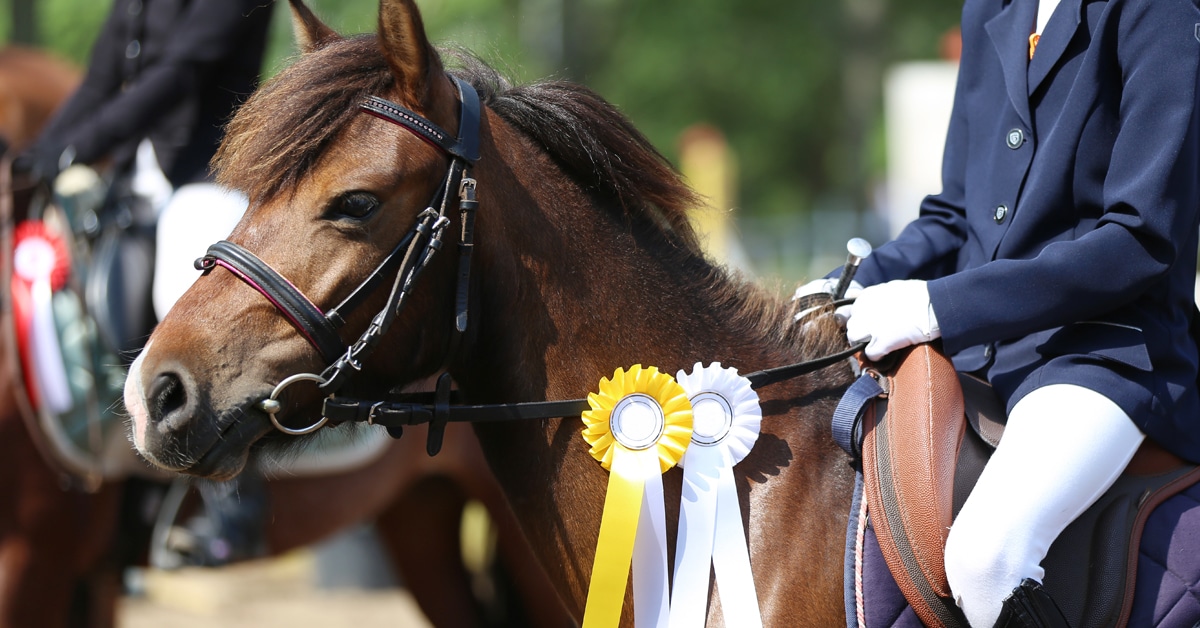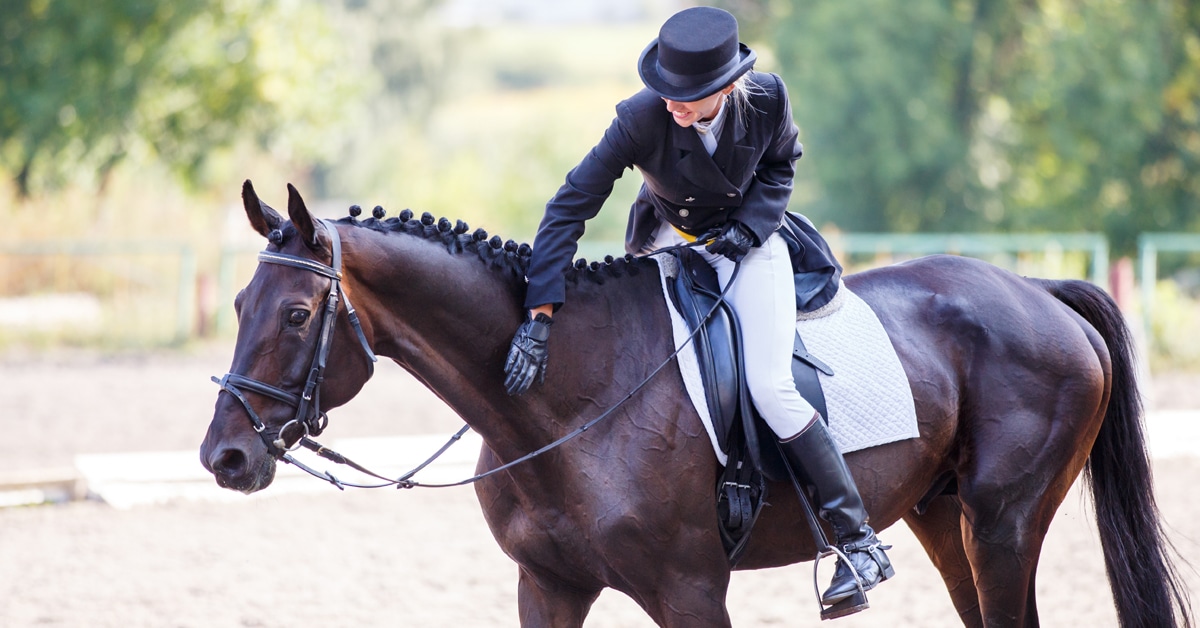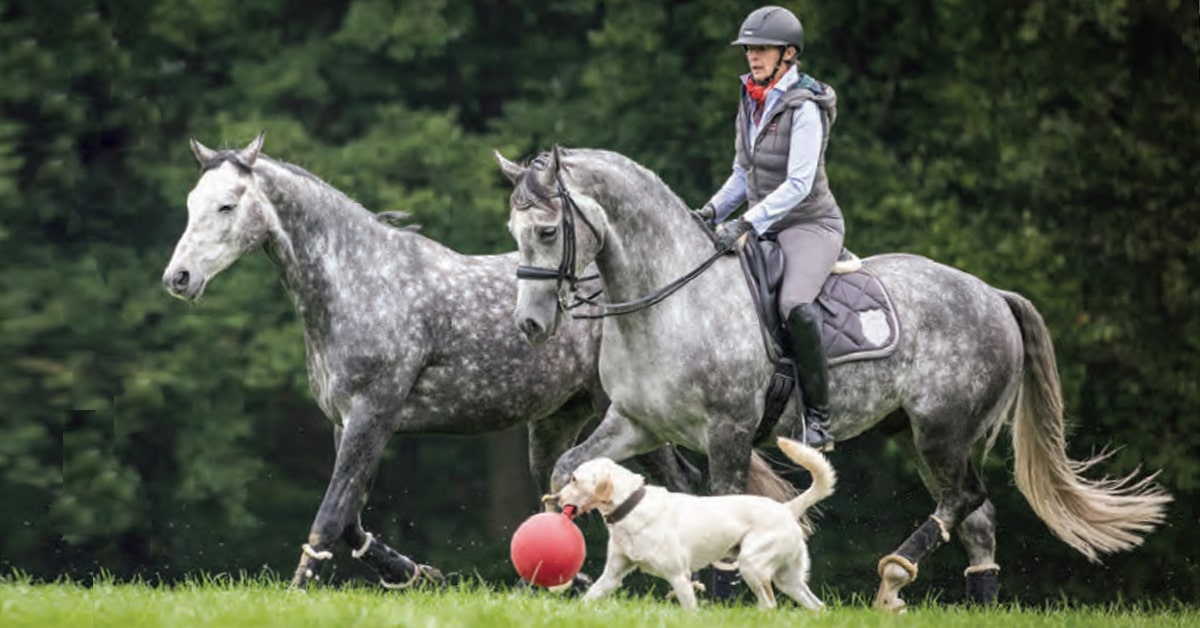Sydney Burns’ and Julia Piskunowicz’s entrepreneurial journey began with a moment of panic.
Burns, a philosophy student at Western University in London, ON, was checking the weather app on her phone between classes when she saw the temperature had spiked by 15 degrees. She thought immediately of her horse, heavily blanketed because of the freezing cold temperatures the day before. A competitive showjumper and member and president of Western’s equestrian club, Burns was flooded with concern for her mare.
“I was worrying, wondering if she was uncomfortable or overheating. Could I make it to the barn in time, or did I just have to hope she was okay?”
Burns’ experience is common among equestrians. With no way to track a horse’s temperature or comfort remotely, there’s only guesswork, angst and wasted time.
“Because of the unpredictability of the weather and the lack of access to real-time health information, it’s a struggle to make the right care decisions from a distance,” Burns said.
There are also potential health risks for the horse. “There’s a rule of thumb that you’d rather have a horse a little too cold than a little too hot,” she said. “When they get too hot, they sweat to cool down, but cold and sweat don’t mix well. It can disrupt their thermoregulation and leave them more prone to dehydration, gut issues and other health complications.”
Bringing tech to the tack
The problem inspired Burns to create a smart tech horse blanket that continuously tracks vital metrics, including temperature, heart rate and gut sounds.
“The sensors send the data to a mobile subscription app that alerts owners the moment something changes, allowing them to take action before problems become serious,” Burns said.
Now, with the support of the Morrissette Institute for Entrepreneurship powered by Ivey, Burns and Piskunowicz are working to get the product to market as co-founders of StableInsights. Beyond helping individual horse owners, they’re aiming to “revolutionize equine care.”
Every blanket will contribute to a first-of-its-kind horse health dataset that can be sold to researchers, universities and equine companies to improve how the industry approaches horse health and performance.
“This wasn’t just my problem; it is one most riders and barn managers experience. I saw an opportunity to create something useful that could erase stress, protect horses, and bring peace of mind to their people.” said Burns.
A shared passion for entrepreneurship
Burns and Piskunowicz, who are both pursuing an Ivey Certificate in Entrepreneurship, met in a business class. When Burns shared her idea with Piskunowicz, a social science major who’s been creating small businesses since she was a child, Piskunowicz was intrigued.
“After transitioning from a science to a social science degree at Western, my passion for environmental science and animal health remained strong. I was eager to find a path that would allow me to combine those interests with my enthusiasm for business, and saw the opportunity and value in this idea.”
But not everyone did. The idea was rejected as a group class project, and they encountered their share of naysayers.
“We definitely weren’t taken seriously at the start, especially by our peers,” Burns said. “There’s still a stigma women in entrepreneurship face and we had a niche product for a niche industry people didn’t understand. It was tough, hearing the idea was ‘silly,’ and that there wasn’t any value to it.”
But the pair never gave up on the concept, as they continued to hone their entrepreneurship skills. They took part in the 2025 President’s Challenge competition, where enterprising students were asked to imagine solutions to address long wait times in Canadian health care. Alongside teammates Kento Hayash and Callum Lew, they earned second place.
They also gained an unexpected champion. Through a networking event hosted through Western, Burns and Piskunowicz met Mark Daley, Western’s Chief AI Officer and professor of computer science. During their chat, they mentioned the smart blanket concept.
It was a pivotal conversation.
“Mark really helped us figure out how to talk to people about our business,” Burns said. “He guided us on how to express the value of what we’re doing to people who might not be familiar with the niche and how to get them genuinely excited about the opportunity. He also gave insights into our go-to-market strategy and the finer details of our business model.”
Daley applauds Burns and Piskunowicz as “ambitious, creative and intelligent entrepreneurs.”
“StableInsights is bringing Silicon Valley to Ontario stables,” Daley said. “Sydney and Julia’s business will create value both through the delivery of their products and services, and from the data they will gather. They’re creating a world with healthier horses, empowered owners and informed veterinarians and veterinary scientists.”
Participating in the Startup Challenge at the Morrissette Institute for Entrepreneurship was also a huge turning point.
“It was our first time doing a full, formal pitch for the company,” Burns said. “It was really validating to have that positive feedback from a panel of judges.”
The pair placed second and have never looked back.
Burns and Piskunowicz continued to grow StableInsights through their Entrepreneurial Summer Internship at Morrissette. They strengthened their product and business model, capturing first place in the program’s final pitch competition.
“It was a great experience,” Piskunowicz said. “I loved hearing from entrepreneurs about their experiences and advice. It was also inspiring to work alongside other students who were also taking their first steps in building a business.”
They credit Morrissette Acelerator manager Kiran Bains and entrepreneurhip advisor Nick Fox for guiding, encouraging and supporting them as they learned the ‘ins’ and ‘outs’ of building their business.
Bains said Burns and Piskunowicz stand out as a strong, resilient team.
“Sydney and Julia collaborate so well and are willing to work through any issues they may encounter. They understand each other’s strengths and play to their own individual strengths,” Bains said.
Piskunowicz agrees. “Sydney brings the lived experience and loves connecting with people. She leads a lot of our external outreach and big-picture planning, while I focus on sustainable systems, finances and internal operations. We come together on research, strategy and the technical side of the business.”
With basic prototyping complete, the pair are now talking with colleges and polytechnic institutions across Canada, looking to build partnerships to advance their research and to ensure their prototype is commercial ready.
“People often ask us why we aren’t doing all the technology in-house, ourselves,” Burns said. “Even though we both have computer science and coding experience, we’ve learned there’s no shame in asking for help from people who have more time and expertise. Especially in developing sophisticated technology, that’s something you don’t want to get wrong.”
It’s a sound strategy, based on their current success. They were recently selected to be part of London, Ont. based Tech Alliance’s GROW accelerator, and next March, they’ll represent Ivey and Western as the only Canadian team in the National Collegiate Innovation Championships hosted in partnership with Baylor University in Nashville, Tennessee.
Bains said she is “not surprised” Burns and Piskunowicz were accepted into a competition normally restricted to U.S. students.
“They’re absolute true hustlers who are both genuinely passionate and have so much belief in what they’re building,” said Bains. “This is just the beginning for them. They deserve this and stand out as a team that carries professionalism and true grit. I’m super proud of them.”
The Latest


